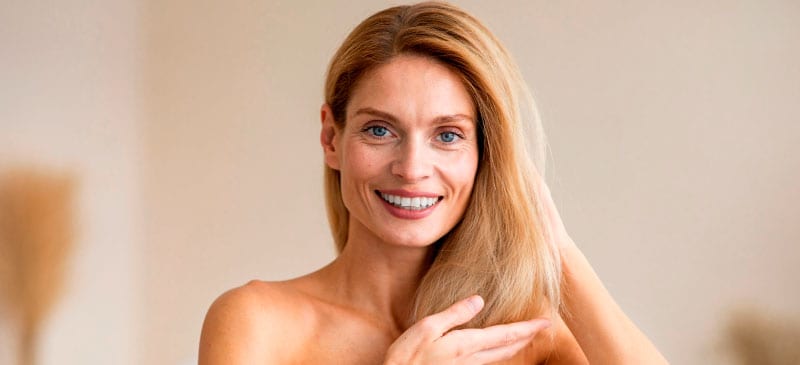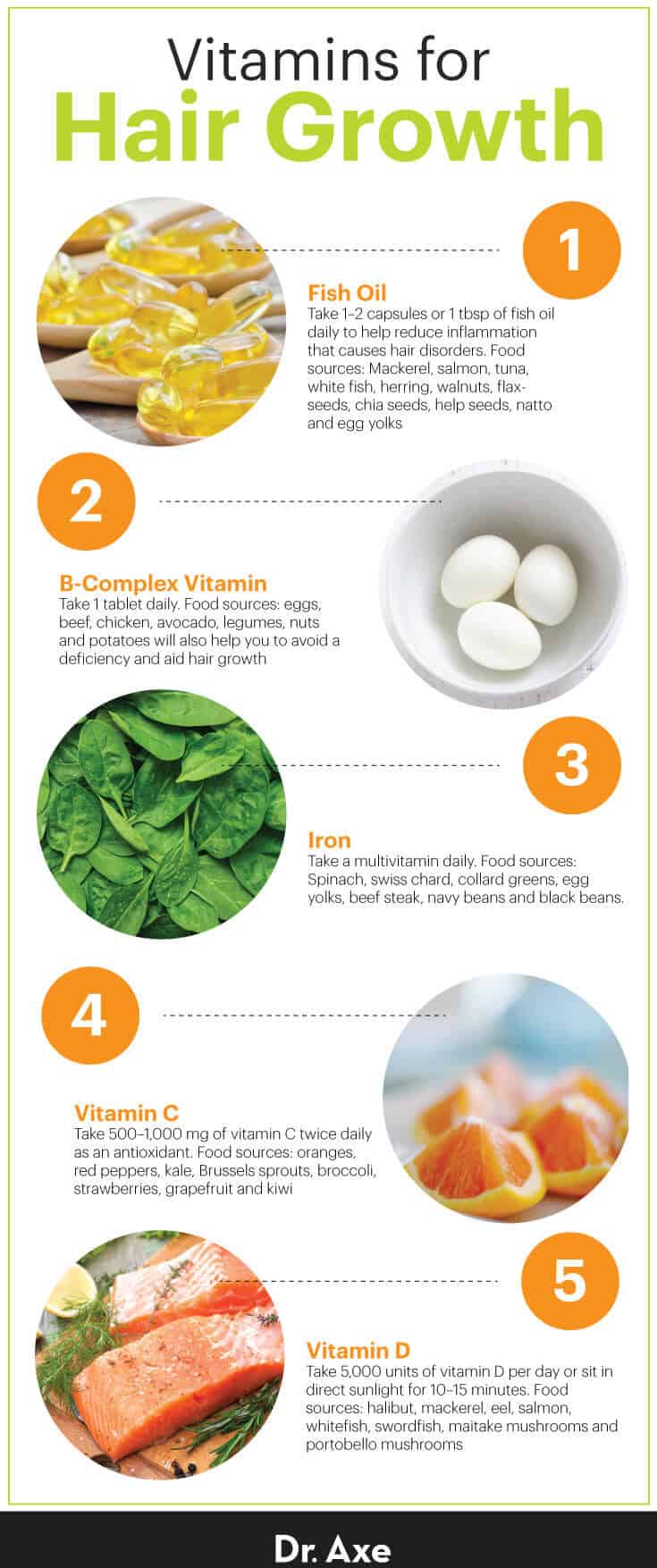This Dr. Axe content is medically reviewed or fact checked to ensure factually accurate information.
With strict editorial sourcing guidelines, we only link to academic research institutions, reputable media sites and, when research is available, medically peer-reviewed studies. Note that the numbers in parentheses (1, 2, etc.) are clickable links to these studies.
The information in our articles is NOT intended to replace a one-on-one relationship with a qualified health care professional and is not intended as medical advice.
This article is based on scientific evidence, written by experts and fact checked by our trained editorial staff. Note that the numbers in parentheses (1, 2, etc.) are clickable links to medically peer-reviewed studies.
Our team includes licensed nutritionists and dietitians, certified health education specialists, as well as certified strength and conditioning specialists, personal trainers and corrective exercise specialists. Our team aims to be not only thorough with its research, but also objective and unbiased.
The information in our articles is NOT intended to replace a one-on-one relationship with a qualified health care professional and is not intended as medical advice.
Best Vitamins for Hair Growth
December 30, 2022

The appearance of hair plays an important role in people’s physical appearance and self-perception, so it can be devastating to experience hair loss, especially when there doesn’t seem to be anything you can do about it.
But did you know that there are vitamins for hair growth? In fact, poor nutrition, including vitamin deficiencies, is a major factor of hair loss. These natural hair loss remedies work to fix the root of the problem, like regulating your hormone levels or fighting oxidative stress that increases with age.
Fewer than 45 percent of women go through life with a full head of hair while a majority of men go through some type of hair loss in their lifetimes. The hair care industry knows that consumers have a great desire to look youthful now more than ever so it constantly delivers new products that promise to promote hair growth. Before you spend your money on yet another product that may leave you disappointed, try using these vitamins for hair growth first.
Vitamins for Hair Growth
The truth is that hair loss is a complex process that involves various genetic, hormonal and environmental mechanisms. Just like our skin, the hair follicle is subject to intrinsic and extrinsic aging. Intrinsic factors include our genetic and epigenetic mechanisms, and extrinsic factors include smoking and UV radiation.
Sometimes hair loss is due to a vitamin deficiency too. Luckily, a deficiency can be corrected by adding vitamin-rich foods to your diet or using supplementation. Some vitamins have antioxidant properties that help to fight the extrinsic factors of hair loss, and some vitamins help the body balance hormone levels, another factor that stops hair growth.
Try these healthy hair vitamins if you’re wonder how to thicken hair naturally.
1. Fish Oil
Oils rich in different fatty acid species have been used extensively in both animal and human studies to evaluate the effects on skin and hair health. Omega-3 fats nourish the hair, support hair thickening and reduce inflammation that can lead to hair loss, which is why fish oil benefits hair and is one of the top six vitamins for hair growth.
A 2015 study published in the Journal of Cosmetic Dermatology evaluated the effects of a six-month supplementation with omega-3, omega-6 and antioxidants on hair loss. In the randomized, comparative study, 120 healthy female subjects with female pattern hair loss participated. The primary endpoint was the change in hair density evaluated on standardized photographs, and the secondary endpoint included changes in active hair follicle percentage and diameter distribution of hair growth.
After six months of treatment, photograph assessment demonstrated a superior improvement in the supplemented group. Hair growth increased compared to the control group, and 89.9 percent of the participants reported a reduction in hair loss, as well as an improvement in hair diameter (86 percent) and hair density (87 percent).
Eat omega-3 foods like salmon, mackerel, tuna, white fish, sardines, egg yolks, walnuts, hemp seeds and natto to reduce inflammation and balance hormones. If you don’t eat enough omega-3 foods, take one to two capsules or one tablespoon of a top-notch fish oil supplement to help reduce inflammation that causes hair disorders.
If you already take blood-thinning medications, including aspirin, speak to your health care provider before using fish oil because it may increase bleeding.
2. Zinc
Oral zinc compounds have been used for decades for treating disorders such as telogen effluvium and alopecia areata, forms of hair loss, because zinc benefits hair follicle health. Zinc is an essential co-factor for multiple enzymes and is involved with important functional activities in the hair follicle.
Zinc is also a potent inhibitor of hair follicle regression, and it accelerates hair follicle recovery. Studies suggest that some alopecia areata patients have zinc deficiency, and oral zinc sulfate therapy serves as an effective treatment.
In a 2013 study, researchers evaluated the role of zinc status in each of the four types of hair loss, including alopecia areata, male pattern hair loss, female pattern hair loss and telogen effluvium. In all of the hair loss patients, the mean serum zinc was significantly lower than the control group. The analysis of each group showed that all groups of hair loss had statistically lower zinc concentration, especially the alopecia areata group. The data led to the hypothesis of zinc metabolism disturbances playing a key role in hair loss.
A 2009 study published in Annals of Dermatology evaluated the therapeutic effects of oral zinc supplementation for 12 weeks in 15 alopecia areata patients who had low serum zinc levels. Oral zinc gluconate (50 milligrams) supplementation was given to alopecia areata patients without any other treatment. The serum zinc levels were measured before and after zinc supplementation, and then a four-point scale of hair regrowth was used to evaluate the therapeutic effect.
After the therapy, the serum zinc levels increased significantly, and positive therapeutic effects were observed for nine out of 15 patients (66.7 percent). The researchers concluded that zinc supplementation needs to be given to the alopecia areata patients who have a low serum zinc level, and it could even become an adjuvant therapy for patients who didn’t experience results when using traditional therapeutic methods, which is why zinc is one of the most important vitamins for hair growth.
3. B-Complex Vitamin (Biotin & B5)
Biotin and pantothenic acid (vitamin B5) have been used as alternative treatments for hair loss. Biotin benefits your hair by rebuilding hair shingles that have been damaged from over-shampooing, exposure to the sun, blow-drying and ironing. Vitamin B5 supports the adrenal glands, which helps stimulate hair growth.
A 2011 study published in the British Journal of Dermatology examined the ability of a leave-on combination including panthenol, the alcohol analog of pantothenic acid, to affect the diameter and behavior of individual terminal scalp hair fibers. The treatment significantly increased the diameter of individual, existing terminal scalp fibers. It also thickened hair fibers and increased the pliability, giving the hairs better ability to withstand force without breaking.
A major sign of a biotin deficiency is hair loss. A deficiency can be caused by smoking, impaired liver function or even pregnancy. Research suggests that a substantial number of women develop a biotin deficiency during normal pregnancy because the rapidly dividing cells of the developing fetus require biotin for synthesis of essential carboxylases and histone biotinylation. Researchers conclude that signifiant alternations in markers of biotin metabolism during pregnancy and breast-feeding suggest that biotin intakes exceed current recommendations in order to meet the demands of these reproductive states.
To reverse hair loss and increase hair strength, take one B-complex vitamin tablet daily or take biotin and vitamin B5 separately. Eating biotin and vitamin B5 foods, such as eggs, beef, chicken, avocado, legumes, nuts and potatoes, also helps you to avoid a deficiency and aid hair growth.

4. Vitamin C
Experimental evidence suggests that oxidative stress plays a major role in the aging process. Reactive oxygen species or free radicals are highly reactive molecules that can directly damage cellular structural membranes, lipids, proteins and DNA.
With age, the production of free radicals increases and the amount of antioxidative enzymes that defend the body decrease, leading to the damage of cellular structures and the aging of hair. By working as an antioxidant, vitamin C fights oxidative stress that contributes to hair graying and hair loss.
To fight free radical damage and protect the hair from aging, fill up on vitamin C foods like oranges, red peppers, kale, Brussels sprouts, broccoli, strawberries, grapefruit and kiwi. If you need supplementation, take 500–1,000 milligrams of vitamin C twice daily as an antioxidant.
5. Iron
Several studies have examined the relationship between iron deficiency and hair loss, and some suggest that iron deficiency may be related to alopecia areata, androgenetic alopecia, telogen effluvium and diffuse hair loss.
Researchers at Tehran University of Medical Sciences in Iran studied the relationship between iron body status and different types of hair loss. They conducted an analytical case-control study to assess whether diffuse telogen hair loss in women between the ages of 15 and 45 is associated with iron deficiency — 30 women with documented telogen hair loss were compared with 30 women without hair loss.
The researchers found that of the nine patients with iron deficiency anemia, eight had telogen hair loss. The mean ferritin (a protein in the body that binds to iron) level was statistically significantly lower in patients with diffuse telogen hair loss than in subjects without hair loss. The study suggests that women with an iron deficiency are at a higher risk of hair loss, and serum ferritin levels below or equal to 30 milligrams/milliliter are strongly associated with telogen hair loss.
To boost hair growth, add iron-rich foods into your diet every day. Eat plenty of spinach, Swiss chard, collard greens, egg yolks, beef steak, navy beans and black beans. Because an iron deficiency may lead to hair loss, ensure that you get your daily recommended amount by eating plenty of iron-rich foods and taking a daily multivitamin.
However, be wary of excessive iron supplementation. It can cause iron overload and should be avoided. Patients who don’t respond to iron replacement therapy should undergo additional testing to identify other underlying causes of iron deficiency and hair loss.
6. Vitamin D
Hair follicles are highly sensitive to hormones, and vitamin D is a hormone that plays an important role in calcium homeostasis, immune regulation and cell growth differentiation. In the scientific world, it’s well-known that alopecia areata is commonly found in patients with vitamin D deficiency, vitamin D-resistant rickets or vitamin D receptor mutation.
Research suggests that insufficient levels of vitamin D have been implicated in a variety of autoimmune diseases, including alopecia areata. A cross-sectional study involving 86 patients with alopecia areata, 44 patients with vitiligo and 58 healthy controls was conducted. Serum 25-hydroxyvitamin vitamin D levels in patients with alopecia areata were significantly lower than those of the patients with vitiligo and the healthy controls. Furthermore, a significant inverse correlation was found between disease severity and serum 25(OH)D levels in patients with alopecia.
Researchers concluded that screening patients with alopecia areata for vitamin D deficiencies seem to be of value for the possibility of supplementing these patients with vitamin D.
Direct sun exposure is the best way to absorb vitamin D, plus you can detox your body with the sun. Sit in the sun for roughly 10–15 minutes to absorb about 10,000 units of natural vitamin D. Topical application of vitamin D might also play a role in the restoration of hair cycle dysfunction in patients with alopecia areata. To increase your vitamin D levels with food sources, eat vitamin D-rich foods like halibut, mackerel, eel, salmon, whitefish, swordfish, maitake mushrooms and portabella mushrooms.
Related: Microneedling Benefits for Hair Growth
What Stops Hair Growth?
Hair is considered to be a major component of an individual’s general appearance, and the psychological impact of hair loss results in detrimental changes in self-esteem and self-worth. It also affects a large number of people, as 50 percent of men are affected by genetic hair loss by the age of 50.
In women, the major cause of hair loss before the age of 50 is nutritional, with 30 percent affected. The main cause of hair loss for women appears to be depleted iron stores, but corrections of these imbalances can stop the excessive hair loss within a few months.
Factors that inhibit hair growth include:
- Poor nutrition
- Hormonal changes
- Family history
- Medications
- Radiation therapy
- Pregnancy
- Thyroid disorders
- Anemia
- Autoimmune diseases
- Polycystic ovary syndrome
- Skin conditions (such as psoriasis and seborrheic dermatitis)
- Stress
- Dramatic weight loss
- Physical trauma
Final Thoughts
- A major contributor to hair loss is poor nutrition, resulting in vitamin deficiencies.
- Studies show that women with an iron deficiency are at a higher risk of hair loss, and serum ferritin levels below or equal to 30 milligrams/milliliter are strongly associated with telogen hair loss. Low serum zinc levels have also been linked to alopecia areata cases.
- Oils rich in different fatty acid species — castor oil also can help hair growth — have been used extensively in both animal and human studies to evaluate the effects on skin and hair health, while there is strong evidence that supports certain vitamins for hair growth.
- Free radical damage can cause hair aging, and vitamin C can help protect the scalp and fair follicles from this major hair growth inhibitor.
- Biotin and pantothenic acid (vitamin B5) have been used as alternative treatments for hair loss. Biotin rebuilds hair shingles, and vitamin B5 supports the adrenal glands.
- Research suggests that insufficient levels of vitamin D have been implicated in a variety of autoimmune diseases, including alopecia areata.












